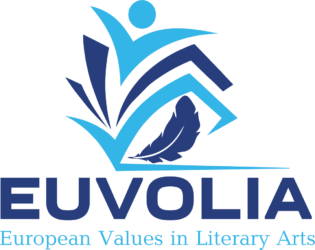July 5-9, 2021 proved a hot time for the REBUILD workshop participants who came to Kyiv from the HEIs located in or transferred from the conflict-affected areas of Ukraine. REBUILD is an acronym for Erasmus+ Jean Monnet Project “Rebuilding the Potential of EU Studies in the Conflict-affected Areas of Ukraine: Addressing Challenges and Creating Solutions” implemented by EUVOLIA’s trusted partner, APREI.
The overall goal of the project is to step in to identify, train and build a cohort of like-minded agents of change which can meaningfully contribute and engage into the rebuilding and improvement of EU Studies in the conflict-affected areas. The project will also examine and reflect on key challenges related to the development of EU Studies in those territories and offer recommendations and examples of how to respond to them.
No wonder the topic of European Values appeared on REBUILD agenda. To introduce the participants to EU values discourse and values-directed approaches in teaching Humanities, EUVOLIA co-coordinator Olena Tupakhina conducted a training on EU values based on EUVOLIA best practices and student research projects results.

During her presentation, Dr. Tupakhina paid specific attention to the vagueness of an average Ukrainian student’s understanding of the concept of European values. In an interactive part of her session, she encouraged workshop participants to take part in a role-playing game and to explain the meaning of core European values, such as rule of law, tolerance, equality, democracy and human dignity, to their counterparts as if they were 5 years old. The workshop attendants quickly acknowledged the challenging aspect of the task: it was hard to get rid of some complicated and over-theoretised notions and to find appropriate examples based of child’s experience. Some of the participants went as far as to admit that they need clarification on some aspects of such concepts as rule of law or tolerance.

This entertaining exercise proved once more that the dialogue about values should be based on the communicant’s actual experience, should refer to their everyday life and must be delivered in a comprehendible and transparent manner. Far too often we tend to hide our own lack of understanding and sometimes even incompetence under the mask of highbrow theoretical concepts.
Let’s hope that EUVOLIA experience will prove useful for the workshop participants and would contribute to rebuilding EU studies potential at their home universities.
